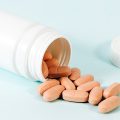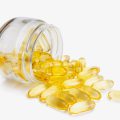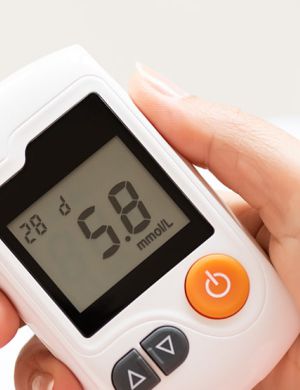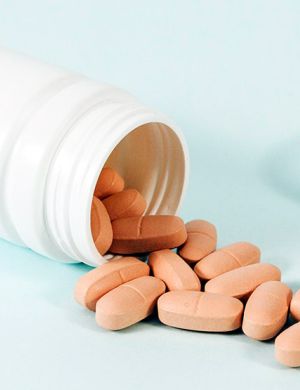
Consumer Health – USA/Europe/Asia/ROW Regulatory News – May 2024
USA
Infant Formula
Many infants in the U.S. rely on infant formula for some or all of their nutrition. Ensuring that the youngest and most vulnerable individuals have access to safe and nutritionally adequate formula products is a top priority for the Food and Drug Administration (FDA). The agency regulates the production of infant formulas to help ensure that these products are safe and support healthy growth in infants who consume them. The agency also works with multiple partners in public health to ensure that parents and caregivers have the latest information regarding safe preparation of infant formula and to answer questions regarding the safety and nutritional quality of formula. In addition, the FDA is working on multiple fronts to support the availability and resiliency of the infant formula market.
FDA, USDA, EPA enhance efforts to reduce food loss and waste, welcome USAID to interagency collaborative
The U.S. Food and Drug Administration announced today the signing of a formal agreement with the U.S. Department of Agriculture (USDA) and the U.S. Environmental Protection Agency (EPA) to renew their Federal Interagency Collaboration to Reduce Food Loss and Waste (FIFLAW). Additionally, the U.S. Agency for International Development (USAID) joined the collaboration as an important federal partner that has an international reach in reducing food loss and waste, marking a significant expansion of the federal collaboration.
FDA’s Reorganization Approved for Establishing Unified Human Foods Program, New Model for Field Operations and Other Modernization Efforts
The U.S. Food and Drug Administration reached a significant milestone with approval of its reorganization involving the creation of a unified Human Foods Program (HFP), adoption of a new model for its field operations and other significant modernization efforts. The reorganization implementation is currently targeted for Oct. 1, 2024, notably enhancing the agency’s ability to oversee and protect the human food supply and other products the FDA regulates.
EUROPE
The #PlantHealth4Life campaign is back, bigger and better! Europe unites to support plant health, biodiversity, and the economy
A broad coalition of partners from across Europe have joined forces to launch today the second year of the #PlantHealth4Life campaign, which aims to raise awareness of the deep links between plant health and our everyday lives, stimulating citizen action to protect plant health. The campaign is led by the European Food Safety Authority (EFSA), the European Commission (EC), and 22 European countries.
African swine fever: significant increase in EU pigs in 2023
In 2023, 14 Member States were affected by African swine fever (ASF) and it caused a five-fold increase in outbreaks in domestic pigs compared to the previous year. These are the main findings of the latest annual epidemiological report published by EFSA today.
ASIA
Singapore
Recall of WODE Baby Antiseptic Wipes
The Health Sciences Authority (HSA) publishes information regarding recalls of health products supplied in Singapore. These product recalls may be conducted on a company’s own initiative or upon HSA request to remove products where there are issues with quality, safety or efficacy.
Updates on reclassified medicines
The following forensic classifications describe the three levels of access controls for therapeutic products in Singapore:
Prescription Only Medicines (POM): A therapeutic product that can only be obtained from a doctor or a dentist, or from a pharmacist with a prescription from a doctor or a dentist. The condition to be treated needs to be diagnosed and treated by a doctor. It can also have serious side effects which require a doctor’s monitoring or follow up.
Pharmacy Only Medicines (P)*: A therapeutic product that can be obtained from a pharmacist at a retail pharmacy. The condition is self-limiting and can be assessed and treated by pharmacists.
General Sale List (GSL): A therapeutic product that can be freely obtained from any retailer. It can be used safely by the public without medical supervision and intended for short term self-treatment only.
Malaysia
KPK Media Statement 29 May 2024- Notification of Cosmetic Products Detected to Contain Scheduled
Poisons The National Pharmaceutical Regulatory Division (NPRA), Ministry of Health Malaysia(KKM) would like to urge the public to refrain from buying and using the following cosmetic products because they have been found to contain scheduled poisons as below.
| No. | Product name | Detected Scheduled Poisons |
| 1 | N GLOWING EWSB | Mercury |
| 2 | KARISMA GOLDEN TURMERIC CREAM | Mercury and Betamethasone 17-Valerate |
| 3 | SL TWO INTENSIVE | Hydroquinone dan Betamethasone 17-Valerate |
ROW
Australia
Product Information safety updates – May 2024
When new safety information for medicines is identified, the Therapeutic Goods Administration (TGA) works with the sponsors to update Product Information (PI) to ensure that health professionals and consumers have access to this information. New safety information can be identified through the TGA’s ongoing safety monitoring activities or uncovered and submitted by sponsors themselves. Please see below details of some medicines that have recently had safety related updates to their PI.
Don’t miss out! Click here to stay in touch.
Categories
- Biopharma (47)
- Consumer Health (15)
- Cosmetics (8)
- Diagnostics (5)
- Digital Health (8)
- Food (2)
- Medical Device (100)
- OTC (3)
- Regulatory Intelligence (5)
- Standards (40)
Recent Blogs
Get the latest updates from Vistaar

Related Posts
CONNECT WITH US

Let's talk about how DDi can help you







